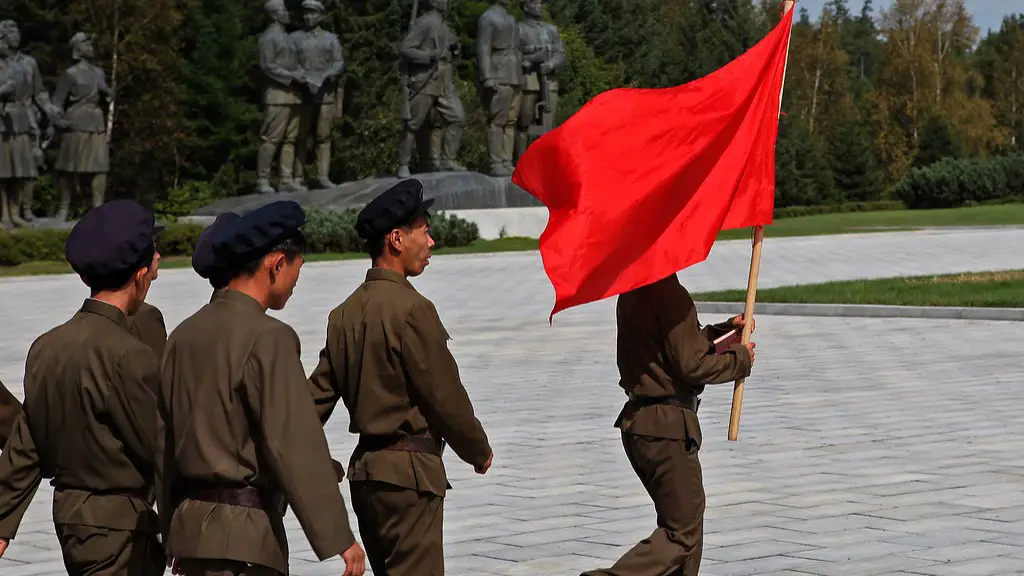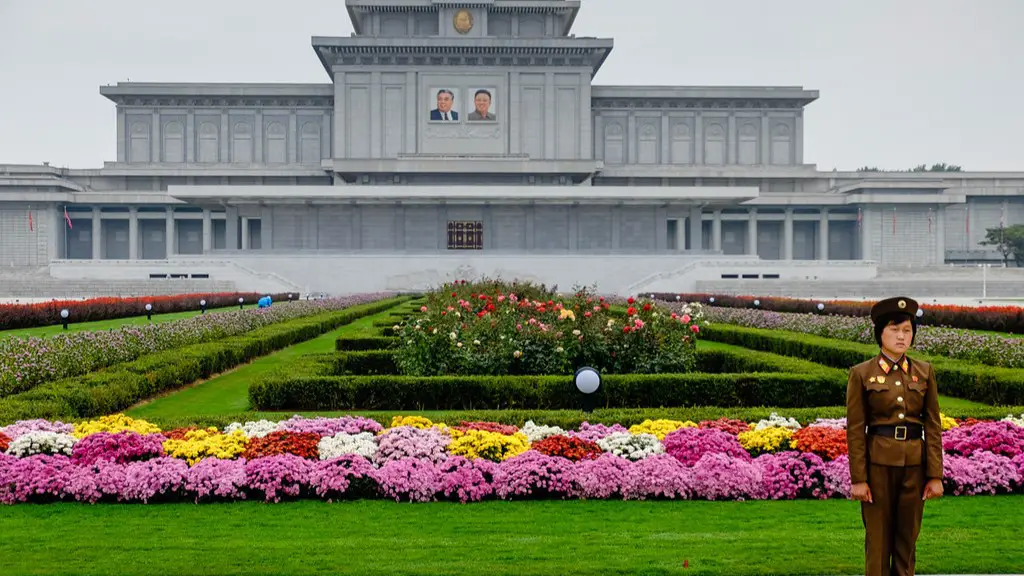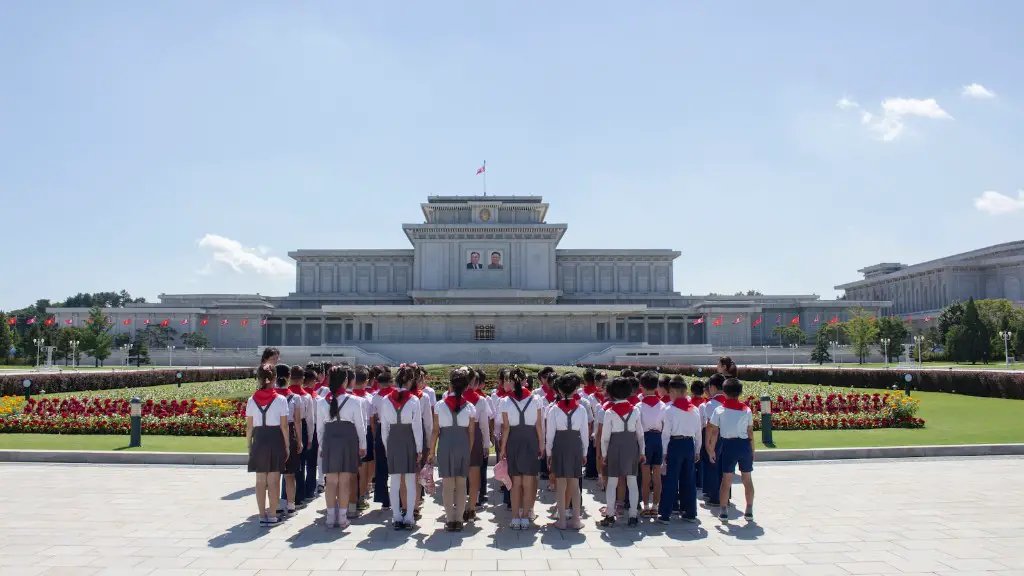Main topic: What sanctions does The United States have against North Korea
Since 2006, when North Korea conducted its first nuclear tests, the United States has implemented multiple sanctions against North Korea, targeting the country’s financial and economic systems, as well as its nuclear program and Weapon of Mass Destruction (WMD) program. The purpose of these sanctions is to put pressure on the North Korean government to come to the negotiating table and to give up its nuclear ambitions.
After multiple rounds of sanctions, the United States has finally imposed the “toughest ever,” which consists of a total of nine separate sanctions. According to the US Department of the Treasury, these sanctions are intended to target “the North Korean financial system, military technology, and nuclear suppliers.” Furthermore, the sanctions also apply to any foreign companies, individuals, or governments that do business with the North Korean government.
The most recent sanctions imposed by the US are aimed at the North Korean munitions industry, which includes a ban on the sale of certain military equipment, a ban on importation of certain weapons-related materials, and a ban on the export of certain materials for the use in North Korea’s nuclear and missile programs. Furthermore, the US has also imposed an embargo on North Korean exports, including most North Korean products, except for those that are considered humanitarian or food aid.
The US has also imposed financial sanctions against North Korea in an effort to prevent the North Korean government from financing its nuclear and missile programs. These sanctions include a ban on North Korean banks and financial institutions, a ban on North Korean foreign exchange activity, and a ban on North Korean access to international financial institutions. Additionally, the US has also imposed sanctions on any North Korean-related entities that are engaged in weapons of mass destruction activities, as well as on anyone who provides support or material for the North Korean government.
According to experts, these sanctions have been effective in curtailing some of the North Korean government’s nuclear ambitions. The sanctions have resulted in a decrease in North Korean exports, a fall in their trade balance, and a decrease in their overall GDP. Additionally, the sanctions have weakened North Korea’s access to international financial institutions, making it more difficult for them to acquire financing for their nuclear and missile programs.
However, there is still much work to be done. For example, experts point out that sanctions alone will not deter the North Korean government from pursuing its nuclear ambitions. In order to have a lasting impact on the North Korean government’s behavior, there must be sustained diplomatic efforts between the United States and other major powers, including China and Russia, in order to reach a lasting resolution to the crisis.
Another topic: Impact of Sanctions
It is difficult to accurately assess the overall impact of the US sanctions against North Korea, as there are multiple factors that contribute to the result. On one hand, the US sanctions have had a significant economic impact on North Korea, with their GDP declining by nearly 3 percent since 2017 and their exports falling by nearly 14 percent since 2016.
On the other hand, while the sanctions have weakened the North Korean economy, they have not had a dramatic effect on their nuclear and missile programs. North Korea has continued to conduct missile tests despite the sanctions, indicating that the sanctions alone are not enough to stop them from developing their weapons. Therefore, in order to effectively curb North Korea’s nuclear ambitions, more must be done beyond just sanctions.
Additionally, the US sanctions have had a significant humanitarian impact on the North Korean people. By limiting the North Korean government’s ability to purchase certain materials needed for economic growth and development, the sanctions have hindered North Korea’s economic growth and have exacerbated poverty in the country. Furthermore, the US sanctions have also had a direct impact on North Korea’s healthcare system, as the country’s ability to import the medical equipment and supplies necessary to treat its citizens has been greatly hindered.
In short, while the US sanctions against North Korea have weakened the North Korean economy, they have not been enough to stop their nuclear ambitions or to improve the North Korean people’s quality of life. Therefore, in order to achieve a lasting resolution to the crisis, The United States must continue to work with other major powers in order to find a way to bring the North Korean regime to the negotiating table and to find a way to denuclearize the Korean Peninsula.
Second topic: North Korean Diplomatic Efforts
Despite the increasing pressure from the US sanctions, North Korea has continued to pursue diplomatic efforts as a means of alleviating the economic burden of the sanctions. In 2018, North Korea and South Korea began a period of reconciliation, with the signing of the Panmunjom Declaration. This declaration allowed for the reopening of the Kaesong industrial complex and the Demilitarized Zone (DMZ). Additionally, Kim Jong Un has met with President Trump twice, with the two leaders signing an agreement to work towards the full denuclearization of the Korean Peninsula.
Furthermore, North Korea has engaged in dialogue with other countries, such as China, in order to increase their diplomatic ties and reduce their economic burden. North Korea has also held multiple summits with both Japan and Russia, with the two countries pledging to increase their cooperation with North Korea in order to bring stability to the Korean Peninsula.
Additionally, North Korea has also sought to strengthen their economic ties with China, with Chinese firms investing heavily in North Korea’s infrastructure, including bridges, highways, and railways. Furthermore, North Korea has also sought to attract foreign investment, with the country allowing foreign investors to open businesses and employ North Korean citizens in order to help boost their economy.
In conclusion, it is clear that North Korea has been seeking to decrease the economic burden of the US sanctions by pursuing diplomatic efforts. While these efforts have yet to result in the full denuclearization of the Korean Peninsula, it is a step in the right direction and will hopefully lead to a lasting resolution to the crisis.
Third topic: International Responses
The US sanctions against North Korea have had an impact on the international community, with other countries being forced to adjust their policies in order to comply with the sanctions. For example, Japan and South Korea have both decreased their imports of North Korean goods in order to comply with the US sanctions.
Additionally, China has also adjusted its policies in order to comply with the US sanctions. For example, China has banned certain imports from North Korean companies and individuals, including coal, rare earth materials, and refined petroleum products. Furthermore, China has also taken steps to strengthen its financial sanctions against North Korea, with the Chinese government freezing the assets of North Korean individuals and companies, as well as those of any foreign companies that do business with North Korea.
Lastly, the US sanctions have also had an impact on other countries’ diplomatic relations with North Korea. The US has continued to call on these countries to sever their diplomatic relations with North Korea, with many countries agreeing to do so in order to comply with the US sanctions.
Ultimately, it is clear that the US sanctions against North Korea have had an international impact, with countries around the world adjusting their policies in order to comply with the US restrictions. While these adjustments will help to weaken the North Korean economy and curb their nuclear ambitions, more must be done in order to find a lasting resolution to the crisis.
Fourth topic: Reactions of North Korea’s Neighbours
The US sanctions have had a significant impact on North Korea’s neighbours, with South Korea, Japan, and China all having to adjust their policies in order to comply with the US restrictions. South Korea has been particularly impacted, with the US sanctions hindering their ability to trade with North Korea and causing the South Korean economy to slow down.
Furthermore, the US sanctions have caused tensions between South Korea and Japan, as the two countries have been unable to agree on how to respond to the US restrictions. Additionally, the US sanctions have created tension between South Korea and China, as the Chinese government has been forced to adjust its policies in order to comply with the US sanctions.
Lastly, the US sanctions have had a direct impact on North Korea’s own people, as the North Korean government has been unable to purchase the economic and military materials necessary for its growth. This has resulted in an economic decline for the North Korean people, with poverty levels increasing and the quality of life decreasing.
In conclusion, it is clear that the US sanctions have had a profound impact on North Korea’s neighbours and its own people. While the US sanctions may have weakened North Korea’s economic and military capabilities, more must be done in order to find a lasting resolution to the crisis.





